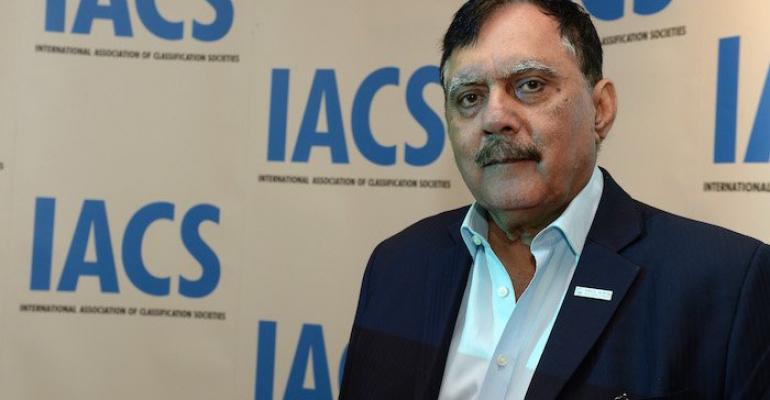Speaking at a press briefing in London on Thursday, Sharma outlined the changing role of class societies which are increasingly seen as “facilitators in helping the industry comply with new regulatory requirements,” involving offering technical expertise beyond their traditional role and “evolving as a solution provider to the industry.”
Class will have increasing focus on technological changes based on the need for more efficient ships and the use new types of fuel, he continued, expressing his personal view that the real challenge would be decarbonisation rather than desulphurisation, with hydrogen looking like one of the most promising early contenders.
Data analytics
Data analytics will also become increasingly important, Sharma predicted, especially considering the industry trend towards condition-based monitoring and surveys. IACS will therefore “embed data” into its decision-making processes, he said, and would also be strengthening its existing Memorandum of Agreement with the IMO on providing technical expertise to cover data-driven policy such as validation of efficiency and GHG (Greenhouse Gas) emissions performance.
IACS wants to “underscore the importance of objectively justified, scientifically evidenced position,” he said, in order to be able to provide policy makers and stakeholders with “robust, detailed and well-argued technical support.”
“If you don’t have the right data, you’re not in a position to take the correct decision,” said Sharma, giving the example of a surveyor benefiting from analysis of data to decide “which part of a ship to inspect and what corrective action to suggest.”
Climate change
Sharma also warned on the growing danger of climate change, citing India’s recent history of extreme and unprecedented weather such as this year’s flooding in Mumbai and previous situations in Chennai and Kashmir.
“The effects are clear to see and to say they are getting frightening is an understatement,” he said, expressing his personal view that adopting slower ship speeds might be the best way to mitigate GHG emissions until low or zero carbon ship technology become available.
Currently available technology solutions offer only “incremental” improvements in fuel efficiency, he added, and “the ‘Big Bang’ in decarbonisation will only come with alternative fuels… it’s going to be the (industry’s) mega effort.”
Copyright © 2024. All rights reserved. Seatrade, a trading name of Informa Markets (UK) Limited. Add Seatrade Maritime News to your Google News feed.


